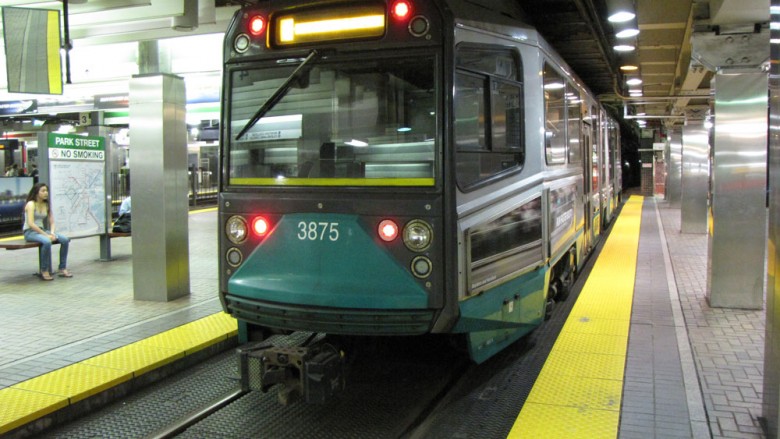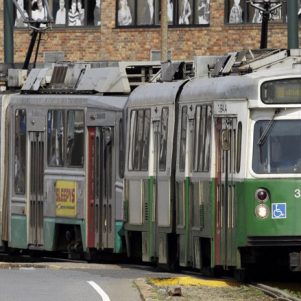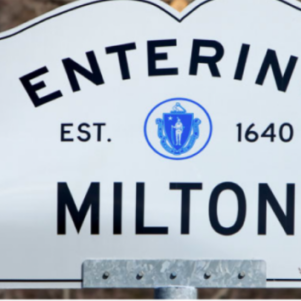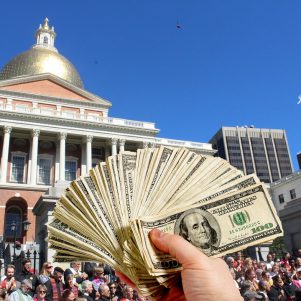Green line funding option could be limited
By State House News Service | March 15, 2016, 6:27 EDT
 A green Line trolley. (Photo courtesy of Wikipedia.org)
A green Line trolley. (Photo courtesy of Wikipedia.org) STATE HOUSE — Struggling against a ballooned budget, backers of the Green Line Extension do not expect development dollars to contribute as much to the project as is the case around the country.
State transportation officials last year identified a gap of as much as $1 billion for the trolley extension into Somerville and Medford and consultants have been trying to pare down the scope of the construction.
In general, potential new revenue sources would leverage the economic growth anticipated from new transit access to help pay costs of installing the rail and building the stations. Some have called for a bigger menu of so-called value-capture tools for financing infrastructure, while critics have cautioned that project-hosting communities are eager to hold onto the tax-related benefits of development.
Christopher Leinberger, whose company LOCUS has done some strategic planning work around one of the anticipated trolley stops in Somerville, told legislative aides and elected officials Monday that around the country the range that value capture can contribute to a project is between 20 percent and 35 percent.
If that math applied to the 4.7-mile trolley extension, the captured value of economic development along the corridor could fund as much as about $1 billion of the project at its most expensive projected cost.
Somerville, which would receive the bulk of the benefit, had a total property tax levy of $129.1 million in fiscal 2016, and Leinberger said much of the Green Line Extension corridor is already built up.
“It really is site-specific. I would say 20 to 35 percent is what we’ve seen elsewhere. How it applies here would have to be studied,” Leinberger told the News Service.
Somerville Mayor Joe Curtatone said value-capture tools would not be able to fund 35 percent of the Green Line.
“We’re not paying a billion dollars out of Somerville,” Curtatone told the News Service.
The mayor, who has worked with the Baker administration since the project overages were identified, said the updated budget would be the first step in determining whether and how new local revenue sources could be tapped.
“First of all what we need to have is the new updated budget to understand what if any gap there is,” Curtatone told the News Service. “I think we’re just operating blindly without it, and I think we all learned that’s not a good thing to do.”
State officials plan to discuss this spring whether to move forward on the project, which won a $1 billion federal grant, or cancel it. No vote is yet scheduled on how to proceed.
The Transportation Committee last week reported favorably on legislation (H 3877) filed by Rep. William Straus, the House chairman of the committee, that would establish a new means of value-capture where the real estate taxes in a given area would finance transportation investments.
Straus’s bill would not add an additional tax but would sequester some portion of local tax revenues to pay for projects.
The bill passed 14 to 0 with no members reserving their rights.
Asked about the legislation on Monday, Gov. Charlie Baker said, “I want to read it but I certainly get the concept.”
Leinberger said similar value-capture instruments and private investment built the country’s rail lines a century ago, and pedestrian-friendly urban land generates “much more money” than suburban land. He said in Hong Kong, fare revenues and real estate fully fund the transit system. In Massachusetts state taxpayers kick in more than $1 billion for the MBTA.
Curtatone said the Green Line Extension would create more than 30,000 jobs and 10,000 new units of housing.
— Written by Andy Metzger
Copyright State House News Service










